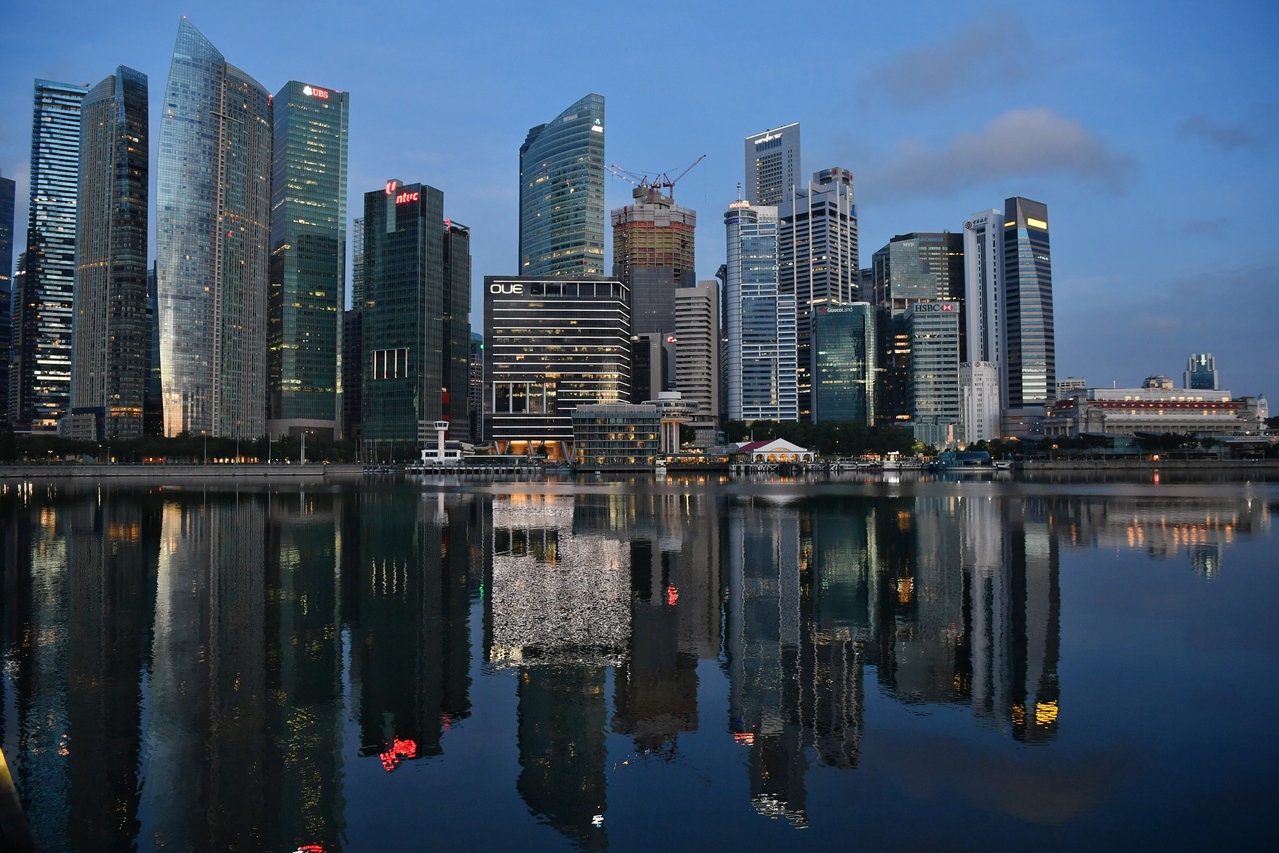Parliament: Singapore must remain open to global tech talent to create jobs and opportunities for citizens: Iswaran
Sign up now: Get ST's newsletters delivered to your inbox

The Republic has to remain open to the diversity of companies in the tech sector to ensure good jobs for Singaporeans.
PHOTO: ST FILE
SINGAPORE - The Republic has to remain open to the diversity of companies in the tech sector to ensure good jobs for Singaporeans, Minister for Communications and Information S. Iswaran told Parliament on Friday (Sept 4).
This entails recognising their need to tap on a diverse talent base, he added.
"Our challenge is to work with these companies to continue creating career opportunities for Singaporeans, while recognising that we must allow them to have the necessary diversity in their talent base, especially in emerging areas, in order to strengthen our position as a digital tech hub," he said.
Speaking on the fifth and final day of debate on the President's Address, and after a number of MPs had raised concerns about an under-representation of Singaporean workers in some sectors or functions, the minister said the digital economy remained a "bright spot" for Singaporean job seekers.
He noted the more than 18,000 jobs and skills opportunities in the sector under the SGUnited Jobs and Skills Package, saying: "Our goal is to have as many skilled Singaporeans as possible to take up these roles, and that is why we are scaling up our efforts, both in pre-employment and continuing education."
For example, the TechSkills Accelerator programme, which equips workers with digital skills, has placed about 6,600 Singaporeans in tech jobs so far. Going forward, the Infocomm Media Development Authority is looking to place and train an additional 5,500 Singaporeans in tech jobs over the next two to three years, he added.
But increasing opportunities for Singaporeans in the sector means also having to take into account its variegated landscape, where firms have diverse needs and therefore different staff profiles, he said.
Tech giants such as Google, Facebook and Amazon have regional headquarters here and hire many Singaporeans both here and abroad, he noted. But the nature of their business means they need a globally diverse talent pool, and the proportion of locals may not be as high as the national average.
For instance, firms like Google and Twitter base their Asia-Pacific engineering teams here and require highly-skilled product managers and artificial intelligence scientists, who are globally scarce. Google is also working with the Government to train up to 3,000 Singaporeans for roles in growth areas like digital marketing and cloud technology.
Meanwhile, local unicorns like Grab and Sea started with and maintain a Singaporean core, but with their rapid international expansion, they too need a strong complement of regional and global talent to be able to compete, Mr Iswaran said. Their increased reach allows their Singaporean employees to venture overseas and gain global experience, he added.
There are also large local enterprises like Singtel, with a high proportion of locals, but which increasingly seek out global talent to complement their Singaporean core as they grow abroad and branch into new areas like cyber security and cloud-based services.
Then there are IT services companies, which play a key role in supporting other sectors, but where there is more that can and will be done to reduce concentration and over-reliance on foreign manpower while strengthening the pipeline of jobs for Singaporeans, he added.
Addressing suggestions from some MPs to offshore some of these jobs, Mr Iswaran said this is not straightforward and the scope for remote work could work against Singapore.
He added: "Our efforts to embrace openness must be matched by an equal, if not greater, effort to achieve an equitable distribution of the benefits and the access to opportunities, to preserve a sense of fairness."
Mr Iswaran noted that trust is key to striking this balance between staying open and inclusive.
"Our citizens must know that the lives and livelihoods of Singaporeans are always our priority; that we have their back. Equally, our international partners must know that we are not just fair weather friends; that we have the political will to stay the course," he said, adding that Parliament also has a duty to build this trust.
"We have painstakingly built an open and inclusive economy - that is able to create opportunities for Singaporeans by welcoming competitive enterprises and talent. It is a precious asset that we must not squander," he added.
Citing the Leader of the Opposition Pritam Singh, who had said in his speech on Monday that the presence of foreign workers keeps Singapore economically relevant and also provides jobs and opportunities for Singaporeans, Mr Iswaran said: "This is an important signal and it is a good starting point."
But the minister added he was "troubled" by Non-Constituency MP Leong Mun Wai's comments about not having a home-grown chief executive at DBS Bank. The bank's current CEO, Mr Piyush Gupta, was born in India and became a Singapore citizen in 2009.
Mr Iswaran said: "By all means, let us passionately argue the case to do more for Singaporeans. But, as parliamentarians, let us also be careful about what our words convey - in this case, the message that we send to those who... have chosen out of conviction to become citizens of Singapore."


